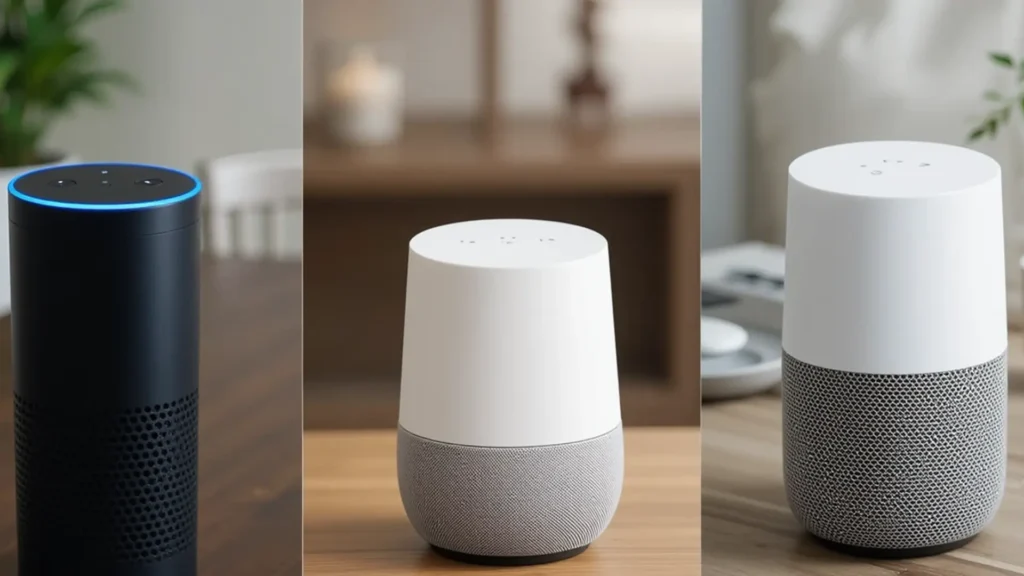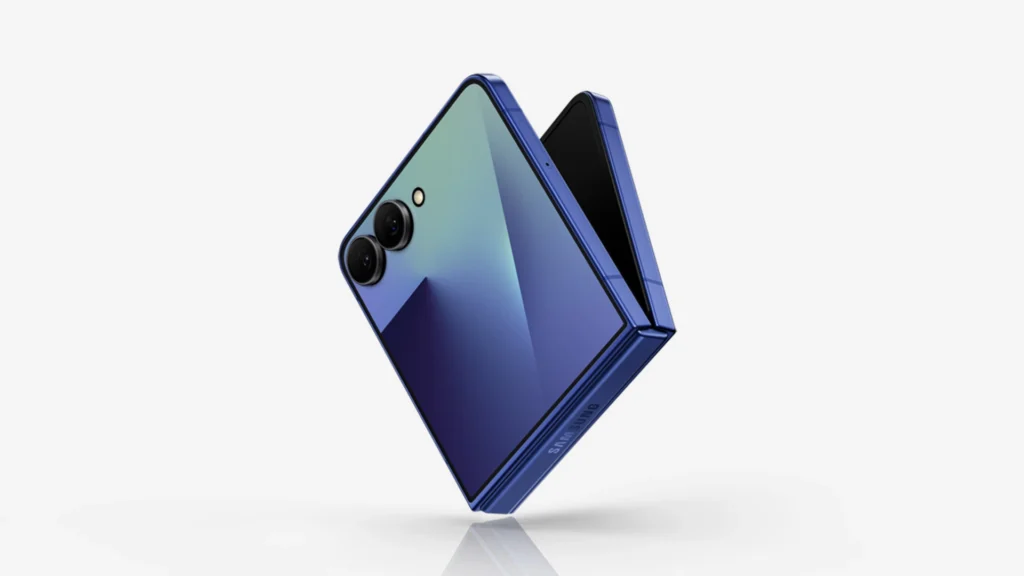You’re thinking of getting a smart assistant. Maybe you’ve seen Alexa on someone’s kitchen counter. Or you’ve heard “Hey Google” a hundred times. But now you want to know what’s actually better: Amazon Alexa, Google Home, or Apple HomeKit.
This is not a small decision. Your smart assistant will be at the center of your daily life. It’ll control your lights, answer questions, and manage your schedule. If you pick the wrong one, you’ll regret it every day.
Smart homes used to be a luxury. Now, they’re becoming normal. Millions of people use smart assistants to control things with their voice. The tools are cheaper, easier, and smarter than ever.
But each platform has its own strengths and limits. Some work better with certain devices. Some respect your privacy more. Some give faster responses or smarter answers.
That’s why this isn’t about picking a name. It’s about picking the system that will actually make your life easier. And what works for your neighbor might be terrible for you.
In this guide, you’ll see what each system can and can’t do. You’ll know which one fits your home, your phone, and your privacy needs. And by the end, you’ll know what to get—without guessing.
The Core of Each System
Let’s start with what each assistant actually is. Amazon Alexa runs on Echo devices. Google Assistant runs on Nest speakers and Android phones. Apple HomeKit uses Siri, and runs on iPhones and Apple’s HomePod.
Alexa was built for shopping and smart home control. It works with thousands of devices. Google Assistant was built for search and context. It understands questions better than the others. Siri was built for iPhones, and it works best if you’re deep in the Apple world.
Each system has its own smart speaker, but the assistant itself is the real star. That’s what listens to your voice, understands commands, and makes things happen.
Now we’ll break down where they stand in key areas: compatibility, setup, voice control, daily use, privacy, and long-term value.
Alexa works with the largest number of smart devices. It supports lights, cameras, thermostats, plugs, locks, TVs, and more. If a company makes a smart device, it probably works with Alexa.
Google Home is also very strong here. Most smart gadgets that work with Alexa also work with Google. But a few don’t.
Apple HomeKit is the most limited in compatibility. It supports fewer devices, and setup can be stricter. If your device doesn’t have “Works with Apple HomeKit” on the box, it probably won’t connect.
But Apple’s smaller system is more stable. Once it’s set up, it rarely breaks. Still, if you want the biggest device support, Alexa wins. Google is second. Apple is third.
Setup: How Easy Is It to Get Started?
Amazon Alexa has a quick setup process. Plug in your Echo, open the Alexa app, and it walks you through it. Adding devices is simple, but managing them can get messy as your list grows.
Google Home is also easy to set up. Google Home app is clean and fast. When you connect a new device, it often detects it instantly. The design is friendlier than Alexa’s app.
Apple HomeKit setup is the most secure but also the strictest. You scan a code on the device. If the code doesn’t scan, setup fails. There’s little room for error. It’s smooth if everything matches—but frustrating if it doesn’t.
For pure speed and simplicity, Google wins. Alexa is close. Apple takes more care but adds friction.
Voice Control: Who Understands You Best?
Google Assistant is the smartest at understanding speech. You can ask it complex questions. It understands context better than the others. If you say, “What’s the weather tomorrow?” followed by, “And the day after that?”—Google gets it.
Alexa is good but not great here. It responds well to direct commands. But it struggles with follow-up questions. If you don’t say things the “Alexa way,” it might miss your point.
Siri is the weakest in voice understanding. It works best for very specific commands. But it fails on deeper or chained questions. You’ll find yourself repeating words or rephrasing often.
So, for daily voice use, Google gives the best experience. Alexa is usable but more rigid. Siri feels older in comparison.
Daily Use: What’s It Like to Live With?
Alexa is great at routines. You can set up custom actions that trigger with a single phrase. You can say, “Alexa, good night,” and it will turn off lights, lock doors, and play sleep sounds.
Google also supports routines. But they can be harder to find and edit in the app. The Assistant is faster at giving information, but slightly slower at smart home control.
Siri is deeply tied to your iPhone. You can trigger smart actions with your voice or Shortcuts app. But HomePod’s abilities are limited compared to Echo or Nest devices. Siri works better for Apple things—messages, reminders, and music—but weaker with smart homes.
Alexa wins for automation. Google is best for answers. Siri is best if your home is already all-Apple.
Music and Media: Who Sounds Better?
Apple’s HomePod has the best sound quality. It fills a room with rich audio. If you care about music, it sounds better than Echo or Nest.
Echo has solid sound too, especially on newer models. It supports more music services than HomePod, including Spotify, Amazon Music, and Apple Music.
Nest speakers have decent sound, but not as deep. They work best with YouTube Music and Spotify. You can cast audio from any device with Google Cast, which is smooth and fast.
For pure sound, Apple wins. For streaming freedom, Alexa wins. For ease of use with Android, Google wins.
Privacy: Who Protects You More?
Apple is strongest on privacy. It processes many things on the device. It doesn’t sell your data. It doesn’t use your voice recordings to train AI. You can easily delete what Siri hears.
Amazon records voice commands to improve Alexa. You can delete your recordings, but you must do it manually. Amazon uses data to push shopping suggestions.
Google also saves voice data. It uses your history to improve accuracy. You can control this in your account settings. But by default, it shares more than Apple.
If privacy matters most to you, choose Apple. Google gives good controls, but shares more. Amazon gives less control overall.
Ecosystem: How Well Does It Work With Other Products?
Alexa is part of Amazon’s world. It connects with Amazon shopping, Fire TV, and Ring cameras. If you use those, Alexa is a strong choice.
Google Home connects with Android phones, YouTube, Chromecast, Nest cameras, and Gmail. It’s great if you use Android or Google services every day.
HomeKit is for people who use iPhone, iPad, Mac, and Apple TV. It integrates perfectly with iOS. But it works poorly outside the Apple world.
Each assistant rewards you for staying inside its ecosystem. If your phone is Android, pick Google. If you love your iPhone, pick Apple. If you want the most freedom, pick Alexa.
Long-Term Value: Which One Lasts the Longest?
Alexa gets regular updates and supports older devices. Amazon continues to improve Alexa, adding skills and features. It’s been in the game longest.
Google has made fast progress. Assistant gets smarter every year. But Google has killed smart products before. Some users worry about long-term support.
Apple updates slowly but keeps devices secure for many years. It doesn’t abandon products quickly. But it rarely adds big new features to Siri.
For steady updates and wide support, Alexa is strong. For smarter updates, Google leads. For long-term security, Apple is the most reliable.
Pick Amazon Alexa if: You want the biggest device support. You care about routines and automation. You’re okay with less privacy.
Pick Google Home if: You want the smartest voice assistant. You use Android or Google apps. You want a balance of speed, smarts, and features.
Pick Apple HomeKit if: You care most about privacy. You already use Apple devices. You want the cleanest experience inside the Apple world.
No one system is perfect. They each win in different ways. What matters is which one fits your life—not just today, but for years to come.
You don’t need to buy the most expensive speaker. You need the right one for your world. The one that works with your phone. The one that fits how you live.
This guide wasn’t written to sell you on a brand. It was written to help you stop guessing. Because the wrong smart assistant will frustrate you every day. But the right one will feel invisible—it’ll just work.
You now know what each assistant does well. You know where they fall short. And you know what matters to you.
This is your home. Your rules. And now, your smart assistant will finally match your needs.


